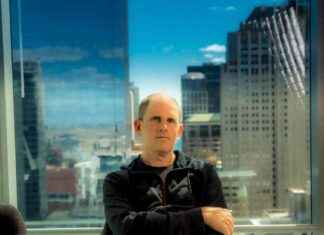He publishes this Wednesday his new novel ‘I will not see you die’
MADRID, 30 Ago. (EUROPA PRESS) –
The writer Antonio Muñoz Molina has celebrated and has described as “amazing” that the behavior of Luis Rubiales has become a “scandal” after the kiss to the player Jenni Hermoso and has assured that Spain has “advanced a lot”.
“The amazing thing, from an anecdotal point, and what is much more striking is that an entire society has advanced so much for it to become a scandal. It is like an extraordinary thing. We have come a long way,” said the writer during the press conference for the presentation of his novel ‘I will not see you die’ (Seix Barral).
In this sense, he has pointed out that it is “difficult to imagine the brutality of the macho discourse” from when he was a child. “The brutality of the macho discourse is difficult to imagine, I have seen that, I have lived it, (…) also the pressure that there was on men from childhood to mark a masculinity by their brutality”, he recalled.
However, he has stated that “there is a long way to go” because machismo “is reproduced and reconciled.” “This gentleman was not born in Franco’s times. Rubiales was born in democracy,” he pointed out.
On the other hand, the writer has specified that he does not see “connections between the Franco regime and now”. “The threat we have now is from an economic model, from very visceral and contemporary policies. “What we have from the past is perhaps the inability of a part of the Spanish right, and also a part of the left, to look at history with some equanimity. The inability to openly reproduce that Francoism was a bloody dictatorship”, he explained.
During the press conference, the writer alluded to the “large scale of nature” in the United States, where he traveled in the 1990s and where the protagonist of the novel lived. “A discovery that a European or a Spaniard makes is the scale of nature, that dazzles you, when you see the rivers that are immense, it’s a ‘poster’, that dazzles you, and there are also many very stimulating things, the tracks, the cars, everything”, has commented on his experience.
Likewise, he explained that “everything was big, solid and very different”. “That difference was very stimulating. For me, getting to face another language or a university soon, of course, here is an urban university, there, I arrived at the university that was practically in the middle of a forest”, he has described.
In addition, he has specified that, “at that time”, at midnight the “giant” supermarkets were open. “It’s something impressive, it dazzles you, it stuns you, it scares you too. The first time I arrived at a supermarket I was lost. It was a place that seemed all medical toys, because they were all things with hard plastic frames. You were going to a world in the one that in a supermarket you can buy an assault rifle and enjoy”, has ensured.
He has also highlighted that he lived “for a long time” in a city where he did not know that more than half of the population was black. “You couldn’t see it because they were in another place. And suddenly, you see it. Curiously, that city is called Charlottesville,” he has detailed.
The author has described the novel ‘I will not see you die’ as a non-fiction genre where he has had “freedom to imagine”. In this sense, he has detailed that he had “a long time with a story in his head about the reunion after many years.”
Thus, he has explained that he first came up with the beginning and “a little later” the title, which shows “the recognition of a farewell long before a farewell”.
Likewise, he has indicated that music “is very important” in the novel, since it is centered on Bach’s cello. “It is an austere, rough and melodic instrument, but when you listen to it it is a flow that does not stop. It gave me a lot of inspiration, I was aware that I wanted that, that’s why I found a tone that I was aware that I wanted to maintain. I thought this novel cannot have 300 pages, it has to have an austerity similar to a cello”, he explained.
On the other hand, he has recognized that the novel has “many points of view” and above all he has highlighted that of the protagonist and that of the friend, who is the “counterpoint”. However, he has indicated that it is also “important” to tell the story from “the conscience of the woman with whom the protagonist meets.” “It is very stimulating and enriching for a story, it is an ethical lesson that the novel gives us as art. Putting yourself and thinking how others see things”, he has pointed out.
For the author, “the advantage of time is also beauty” and he assures that “love is also associated with youth”. “Passion can last a long time, it doesn’t end. Beauty doesn’t end when youth is gone either. Time magnifies beauty. In the novel it was very important to show how passion lasts a long time and how beauty can last and shine again. another way,” he said.
After finishing the book, he acknowledged that “he was not very sure because it was a novel that emerged”, but that he is finally “happy”.







